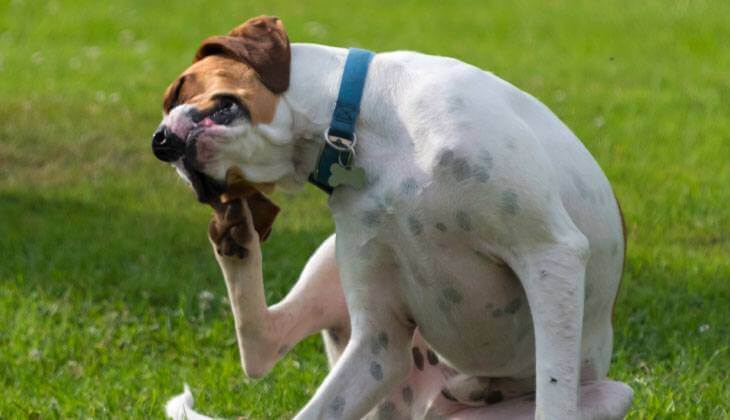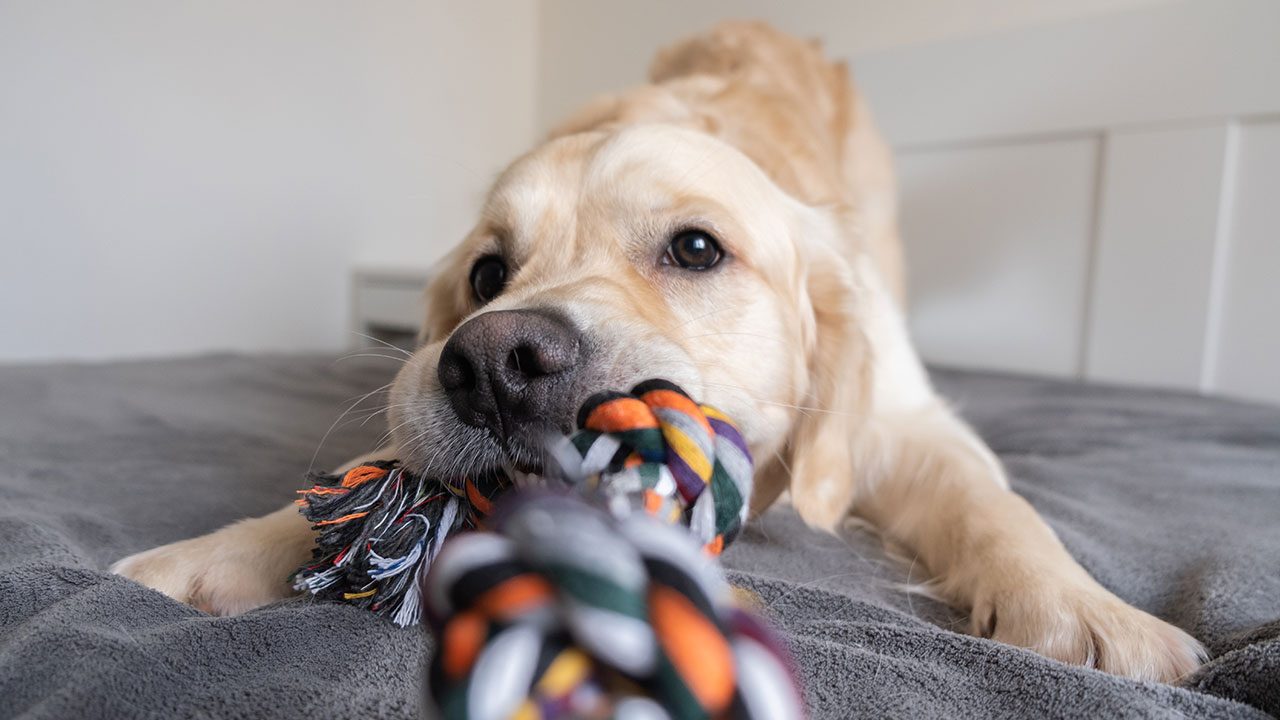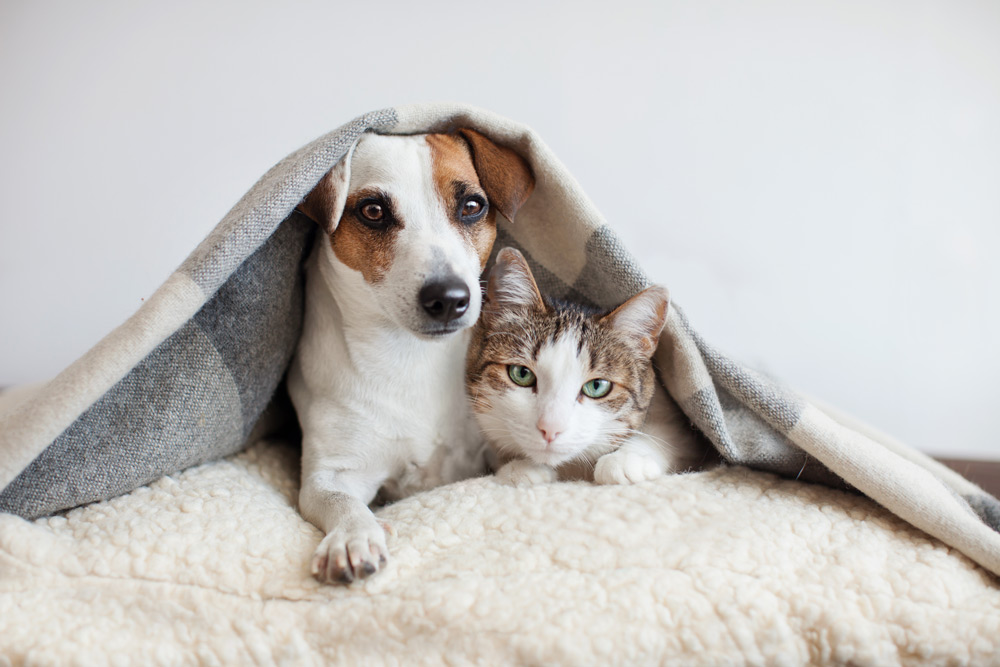Most dogs pick up fleas at least once in their lifetime. Fleas are a very common parasite found on dogs, perhaps because fleas and dogs both seem to love outdoor areas that are shady, cool and moist, like under trees and near shrubs.
Fleas are great at jumping and can quickly spread within a kennel, shelter, grooming facility, and then they can be transferred to your house. The good news is early detection can stop them from multiplying and wreaking havoc on your dog and in your home. Here are five clear signs that fleas might be feasting on your dog.
ABNORMAL SCRATCHING, LICKING AND/OR BITING
The first sign of fleas on a dog is often unrelenting scratching. Fleas like to hide in hard to reach places such as the head, neck, tail, and groin. If your dog is scratching, licking or biting these places, it is an indication of fleas.

UNUSUAL RED PATCHES
Red bumps, rashes, and irritation on your dog’s skin may be the result of a hypersensitivity to flea saliva and an indication that your dog is suffering from flea bites.
HAIR LOSS
Excessive biting and scratching of flea-covered areas may lead to a condition called alopecia (hair loss). Don’t worry! Your veterinarian can suggest a treatment plan.
SEE FLEAS ON YOUR DOG
These are small, fast-moving brown insects that can be seen running along the skin at the bottom of the hair coat. They look very thin from above and are oval-shaped when seen from the side. Fleas have a very tough outer coat and are almost impossible to squash with your fingers.

FLEA DIRT
Flea dirt are the reddish-brown particles left on your dog’s coat and around your home. Fleas release digested blood in the form of feces. You can spot flea dirt in two ways.
- The first way is to spray water on the flea dirt (against white paper towel). If the dirt leaves a red or rust-colored streak, it is flea dirt.
- The second way to spot flea dirt is to wear white socks in areas your dog likes to spend time. If reddish particles are visible on the fibers of your socks, it is likely flea dirt.
Check your dog for fleas regularly. If you suspect your dog has fleas, consult a veterinarian. If fleas are confirmed, all members of your family and other pets will need treatment. You may also need to treat your home. Frequent vacuuming and washing of your dog’s bedding can decrease the number of fleas in your home.
If you follow these steps, your dog should be flea-free before you know it!
Looking for a Vet?
Your veterinarian plays a big role in your pet’s health. Input your location information and get a list of veterinarians near you.
Find A Vet Near Me





 Go To United States
Go To United States Austria
Austria Belgium
Belgium Czech Republic
Czech Republic Denmark
Denmark Europe
Europe Finland
Finland France
France Germany
Germany Greece
Greece Hungary
Hungary Ireland
Ireland Israel
Israel Italy
Italy Netherlands
Netherlands Norway
Norway Philippines
Philippines Poland
Poland Portugal
Portugal Romania
Romania Saudi Arabia
Saudi Arabia Slovakia
Slovakia South Africa
South Africa Spain
Spain Sweden
Sweden Switzerland
Switzerland Turkey
Turkey United Kingdom
United Kingdom